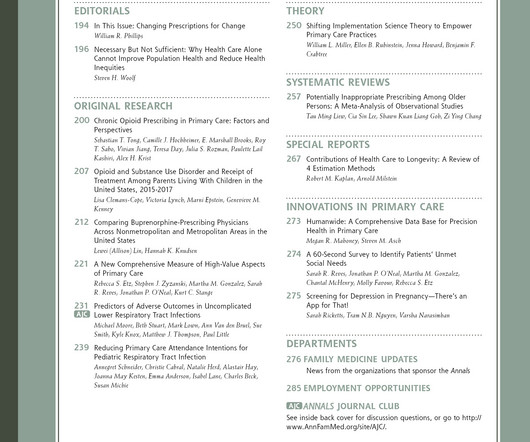Pain-Related Medication in Adults with Intellectual Disability: a systematic review [Pain management]
Annals of Family Medicine
NOVEMBER 20, 2024
Objective: To synthesize literature on pain-related medication in adults with ID and examine how it relates to MLTCs and polypharmacy and explore the views of adults with ID, caregivers and healthcare providers on pain medication use. Measures: Varied by study design; self/carer-report or electronic health records (EHR).


















Let's personalize your content